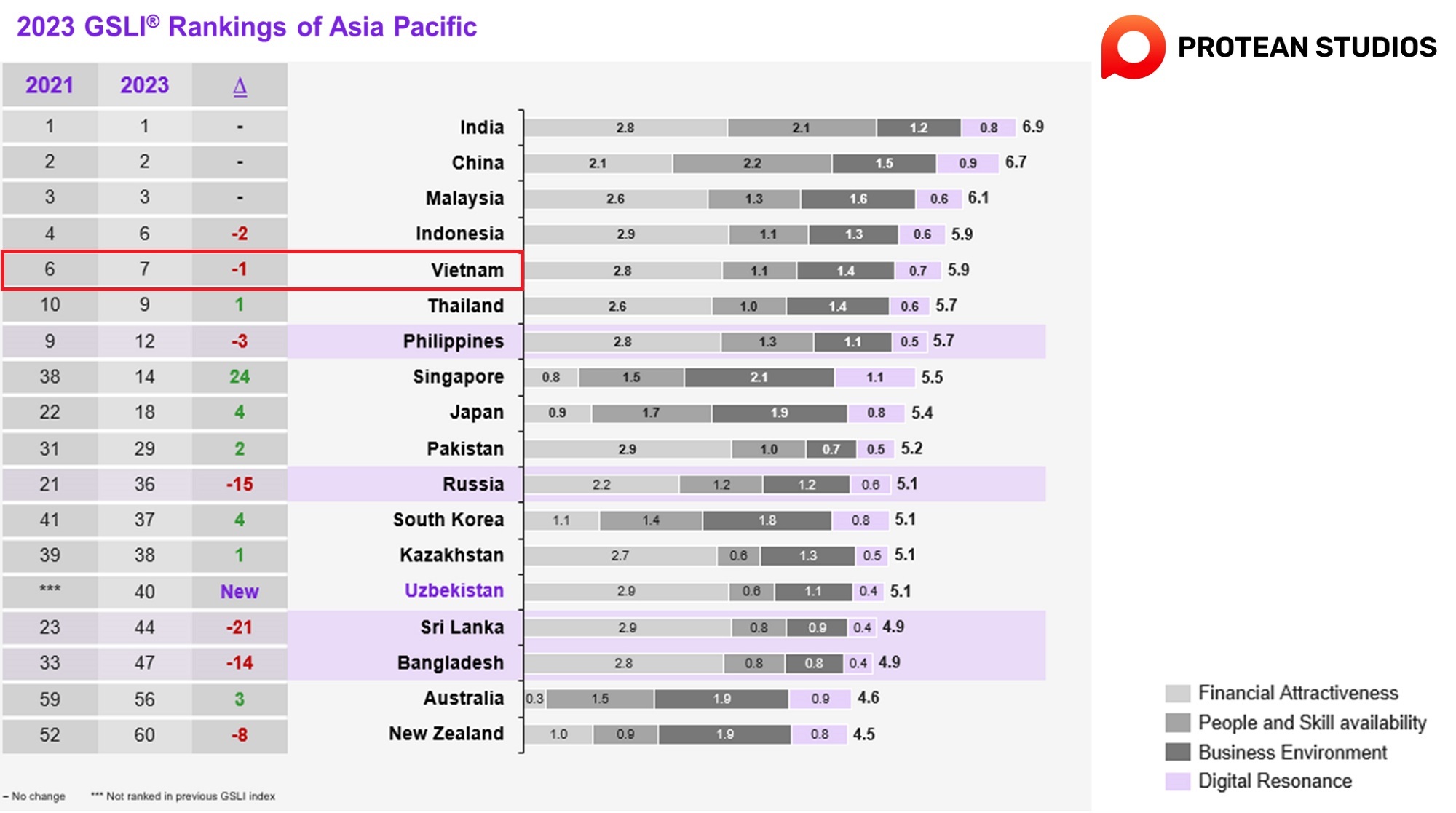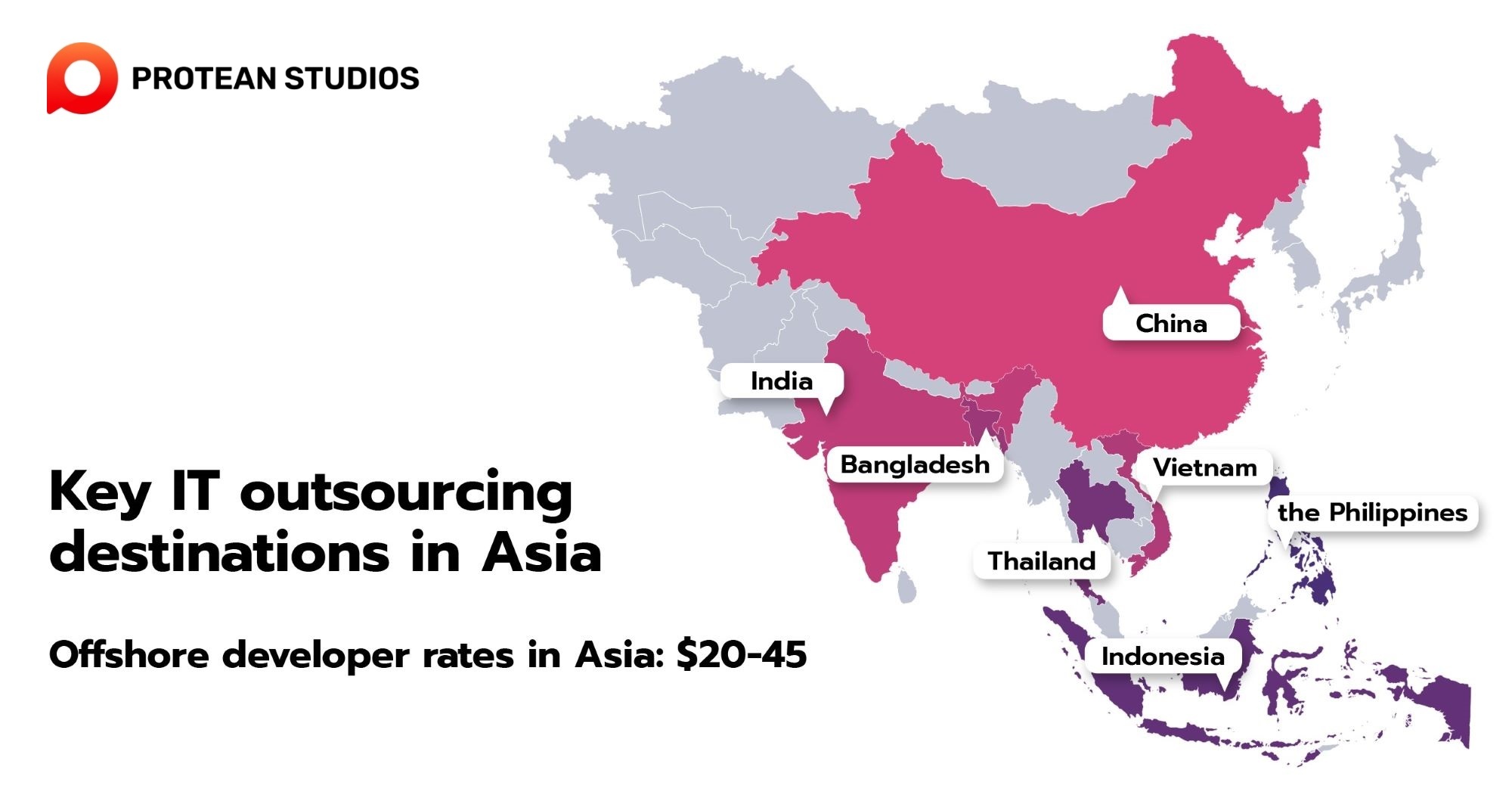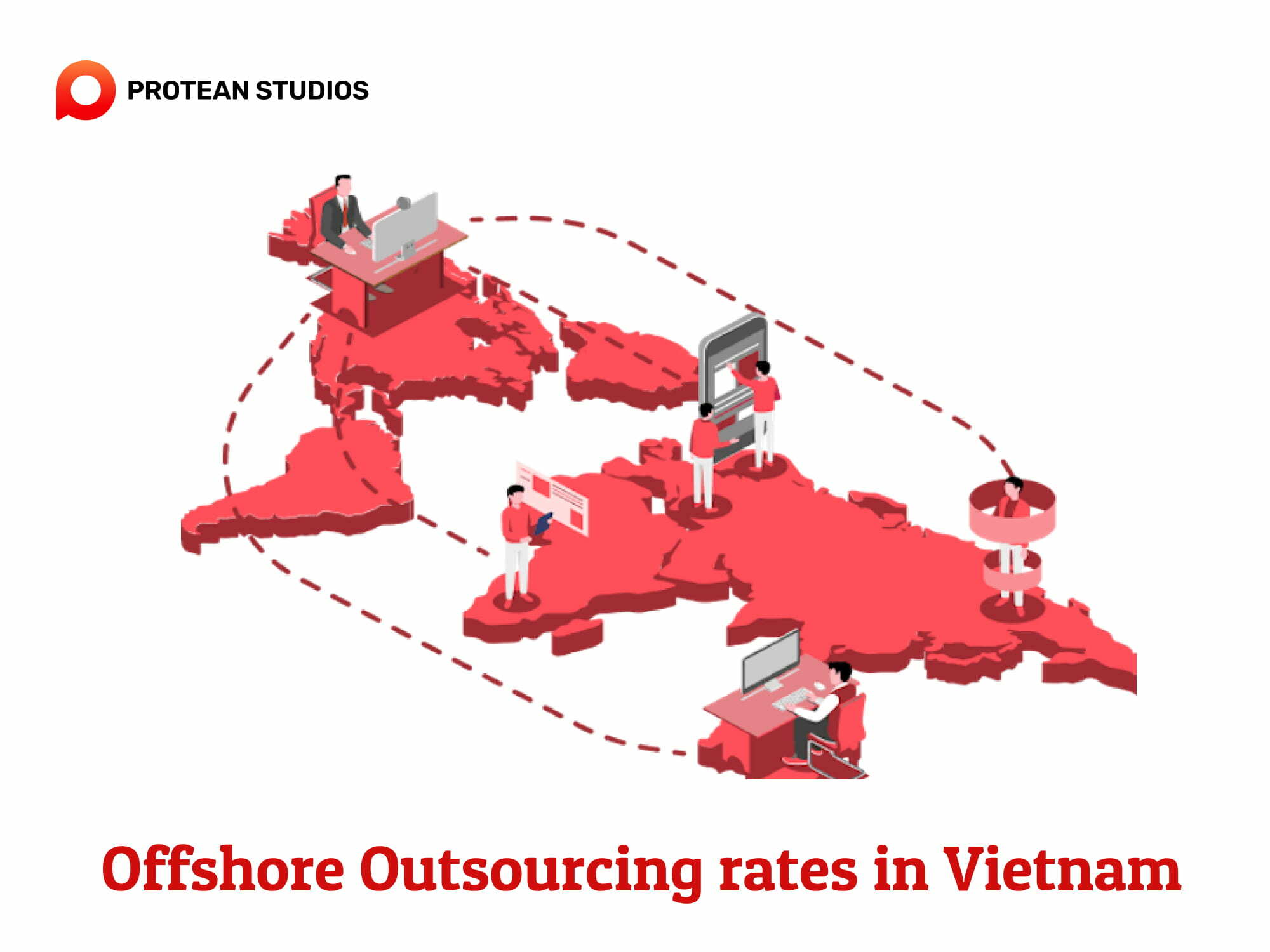Nowadays, offshore outsourcing is a common trend in the global business landscape, especially in the Asia-Pacific (APAC) area. It offers advantages to companies seeking cost efficiency, improved productivity, and access to a broader talent pool.
The question arises
Which countries provide optimal rate-to-quality ratios for offshore services?
Where are the hotspots for outsourcing?
In this article, we will discuss the hot destination for outsourcing development through comparison.
Factors Affecting Offshore Software Development Rates
Many factors impact offshore costs and development rates. Yet, it is necessary to understand the price difference between countries via key elements.
1. Expertise and experience
The ongoing global shortage of IT experts affects the costs of offshore outsourcing development. In general, high demand for specific skills and specialists' experience influences prices.
Skilled specialists and software architects are in high demand. This leads to higher hourly service charges. This is especially true for services that need creativity and technological advice. As a result, expert expertise and experience become even more valuable.
Learn more: The Role Of Offshore Software Development In DX
2. Location
Another factor is the location of the offshore provider. Different countries and regions have different standards of living, infrastructure, and market conditions that influence the rate of software development. For example, developers in Eastern Europe or Asia can charge lower rates than those in Western Europe or North America.
3. Labor costs
A third factor is the labour cost of offshore companies. This includes not only the salaries of the developers but also the overhead costs. For instance, office rent, utilities, equipment, software licenses, and benefits
These costs vary depending on the size and structure of the offshore outsourcing company. Besides, local regulations and policies also affect the development of countries. Some offshore providers can offer lower rates by cutting corners on these costs. However, this may compromise the security and reliability of the software.
4. Taxation system
A fourth factor is the taxation system of offshore technology activities. Different countries have different tax regimes that affect the profitability and legality of offshore software development. Some countries offer tax incentives or exemptions for offshore activities, while others impose high taxes or restrictions on them.
The landscape of offshore outsourcing development in APEC
Offshore outsourcing is the practice of hiring external software developers from other countries. The goal is to handle projects that in-house or local teams would otherwise undertake. This practice has become popular in recent years because it offers several benefits for both clients and developers.
According to the 2023 Global Services Location Index (GSLI), APAC countries are doing well. India, China, and Malaysia are leading the pack this year because they have lower costs, many skilled people, and strong abilities. Also, Indonesia, Vietnam, Thailand, and the Philippines are doing great when in the top 10 too. Besides, Singapore jumped 24 ranks from 38th to 14th, which makes an impression on many countries.
You can see the rates of APAC countries in the image below.

In general, the key strength of this region is affordable rates for software development work. It often ranges from $18 to $45. Asia has a massive pool of 10 million tech experts, making it a great choice for tech projects. The major IT outsourcing centres in Asia include China, India, Vietnam, Indonesia, the Philippines, Malaysia, and Bangladesh.
Overview of offshore outsourcing countries in the Asia-Pacific area
In this section, we will provide an overview of prominent offshore outsourcing countries in the Asia-Pacific region, discussing their strengths, capabilities, and contributions to the global outsourcing industry.
1. India
Cost: $25 to $50
Technology expertise: Java, C++, Python
Major IT centres: Bangalore, Mumbai, Chennai, and Kolkata.
India (GSLI rank 1) has established itself as a global outsourcing powerhouse, particularly in the IT and software development sectors. They have a large pool of skilled professionals proficient in technologies and software development languages. Now, India offers cost-effective solutions without compromising on quality.
This country is a great place for outsourcing because it has a good business environment, good English, and strong tech capabilities. They do a lot of software development, customer support, and business process outsourcing (BPO).

2. China
Rates: $50-80
Tech stack: Python, algorithms, and functional development
IT hubs: Beijing, Shenzhen, and Shanghai.
China (GSLI rank 2) has emerged as a formidable player in the global outsourcing landscape. And they are offering a diverse range of offshore outsourcing services.
China's good location, fast-growing economy, and support from the government have boosted its outsourcing growth. Moreover, the country's advancements in emerging technologies like AI, IoT, and automation further contribute to its attractiveness as an outsourcing destination.
3. Vietnam
Rates: $20-40
Tech stack: Java, Node.js, PHP, and NET
Central hubs: Hanoi, Ho Chi Minh City
Vietnam holds a solid position as an Asian outsourcing hub, ranked 7th in GSLI. Vietnam is a global digital hub, and we have significant technology companies. The country offers a young, dynamic workforce, often well-versed in IT and software development. Vietnam's economic stability, government initiatives, and an increasing focus on education further enhance its appeal.
Therefore, outsourcing in Vietnam is becoming more and more appealing to other countries.

Besides, you can also explore more hot destinations for offshore outsourcing via the blog: Offshore Software Development: A Global Rate Comparison
Disruptive technologies for the future of IT outsourcing
Disruptive technologies are transforming the landscape of offshore outsourcing. So, they can reshape the way businesses operate and collaborate across borders. Artificial intelligence (AI) stands at the forefront of this transformation, enabling automation, data analysis, and predictive insights.
AI-powered algorithms and machine learning models are especially streamlining processes. As a result, it enhances decision-making and reduces manual intervention in various tasks. These also impact the way IT outsourcing countries operate and deploy projects.
The integration and strategic implementation of these disruptive technologies may impact the future of offshore software. It can drive innovation and redefine the nature of work and collaboration in the global business environment.
In general, Asia Pacific stands as a global hub for offshore outsourcing, showcasing key hotspots such as India, China, Vietnam, and more. These countries offer a rich blend of skilled talent, cost-effectiveness, and robust technological capabilities.
If you feel interested in this topic and want to know more, please access the news on our website.




